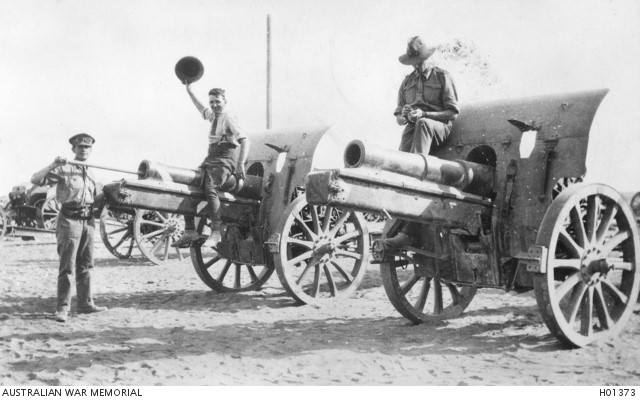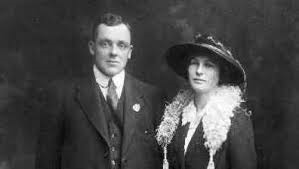Ref Adapted from a story by Darryl Kelly in Just Soldiers.
https://anzacday.org.au/trooper-sloan-scotty-bolton-dcm
A Rich Heritage by Margaret Grant (Sloan Bolton’s daughter).
Trooper Sloan Bolton or ‘Scotty’, as he was called by his mates, was an engine driver from Geelong in Victoria when World War 1 broke out. He volunteered to serve and eventually ended up in the 4th Light Horse Regiment. He was shipped off to Cairo and ended up in Gallipoli serving as infantry in early June 1915. In the trenches dysentery and diarrhea were rife. He fell sick but was loathe to abandon his mates and battled on till late August when he was finally evacuated to hospital in Cairo in Egypt. He rejoined his regiment in early January 1916 only to fall sick again with mumps a short time later.
 Before he could see action that year, he was once again in hospital, this time with malaria. By the time he was released, the unsuccessful attacks on Gaza had taken place and preparations were now taking place for the march to Beersheba. The 4th Light Horse Regiment was held in reserve for most of the 31st October, 1917, but were called upon late in the afternoon for the charge. Two regiments of 400 men each were to charge straight into the full face of over 4,000 Turkish entrenched soldiers with 28 field guns and a mass of machine guns.
Before he could see action that year, he was once again in hospital, this time with malaria. By the time he was released, the unsuccessful attacks on Gaza had taken place and preparations were now taking place for the march to Beersheba. The 4th Light Horse Regiment was held in reserve for most of the 31st October, 1917, but were called upon late in the afternoon for the charge. Two regiments of 400 men each were to charge straight into the full face of over 4,000 Turkish entrenched soldiers with 28 field guns and a mass of machine guns.
Bolton was riding ‘Monty’ that day and at one stage in the charge, his horse nearly fell almost throwing Bolton off, and he was later to discover that a bullet had just missed his leg but gouged the horse’s rump. Bolton and Monty leaped over the first row of trenches, lashed at 2 Turks in the second with his bayonet and galloped into town. He saw a Turkish soldier heading for a house. Bolton galloped up to him and grabbed his revolver. When he re-mounted, he saw through the windows a German officer at a switchboard wired to detonate all the town's important buildings and wells. Bolton jumped from his horse and burst into the room pointing the revolver at the officer. His mate, Trooper Ray Hudson, joined him and took the officer prisoner, thus saving most of the wells intact.
As he came out of the building he saw a German officer leading seven men and a Turkish field gun, escaping town.  He took off in pursuit and ordered the officer to stop, which was ignored. He took aim but the revolver misfired. He then hit the officer over the head and he surrendered. He grabbed the reins of the lead horse and stopped the escapees, keeping them bluffed with his empty gun until help could arrive. He headed back to town and collected another 20 or more escaping Turks on the way. All the Turks were armed and Sloan was virtually unarmed. As he says in his diaries, "They might easily have reversed the situation had it occured to them."(1) For his bravery he was awarded a Distinguished Conduct Medal.
He took off in pursuit and ordered the officer to stop, which was ignored. He took aim but the revolver misfired. He then hit the officer over the head and he surrendered. He grabbed the reins of the lead horse and stopped the escapees, keeping them bluffed with his empty gun until help could arrive. He headed back to town and collected another 20 or more escaping Turks on the way. All the Turks were armed and Sloan was virtually unarmed. As he says in his diaries, "They might easily have reversed the situation had it occured to them."(1) For his bravery he was awarded a Distinguished Conduct Medal.
He was involved in March and April 1918 with the attacks on Es-Salt and Amman. As part of this operation he received a direct hit from a shell. He cried out for help as he felt his life ebbing away. He was carried out on a blanket. For days his life hung in the balance.
 When he recovered consciousness, he found himself in hospital in Jericho. He was disappointed to learn that he had lost both legs. He was repatriated to hospital in Melbourne where he was given artificial legs. Despite several setbacks with gangrene, his determination was bolstered when a former acquaintance hospital paid him a visit. Elsie Reid had been 18 years old when he left for the war and was now a confident young school teacher. Their affection grew and Scotty finally walked out of the hospital. In 1922, he married Elsie and settled in the Geelong area. They bred cattle and produced a champion Jersey bull for the Melbourne Show of 1934. Scotty battled with health problems during the Depression and died in December 1947. About six months later, the homestead was engulfed in flames and his medals were destroyed. Elsie tried to get replacements but was turned down. In 1970, Bolton’s 10 year-old granddaughter wrote to the Queen who was to visit Australia. This time, they were replaced.
When he recovered consciousness, he found himself in hospital in Jericho. He was disappointed to learn that he had lost both legs. He was repatriated to hospital in Melbourne where he was given artificial legs. Despite several setbacks with gangrene, his determination was bolstered when a former acquaintance hospital paid him a visit. Elsie Reid had been 18 years old when he left for the war and was now a confident young school teacher. Their affection grew and Scotty finally walked out of the hospital. In 1922, he married Elsie and settled in the Geelong area. They bred cattle and produced a champion Jersey bull for the Melbourne Show of 1934. Scotty battled with health problems during the Depression and died in December 1947. About six months later, the homestead was engulfed in flames and his medals were destroyed. Elsie tried to get replacements but was turned down. In 1970, Bolton’s 10 year-old granddaughter wrote to the Queen who was to visit Australia. This time, they were replaced.
The 1987 Light Horsemen movie is based on the story of 4 soldiers including Scotty Bolton. Jon Blake who stars in the movie was on his way home to Adelaide after completing the film and was involved in a tragic car accident that cut his career short and left him with severe head injuries and brain damage.
Scotty’s story is typical of the determination, courage, mateship and sacrifice that made the ANZACs a legend and enabled them to break through impossible odds to achieve a victory that no one thought possible. The ‘last great cavalry charge in history’, as the Beersheba victory has become known in military history, is a testimony of what can be accomplished by a couple of outnumbered regiments of dedicated soldiers determined to fight to the end.
Note:
1. Dreams of the Past. Diary of Trooper Sloan Bolton D.C.M.
Pictures:
- Bolton and Monty https://anzacday.org.au/trooper-sloan-scotty-bolton-dcm
- Captured Turkish artillery at Beersheba. Australian War Memorial photo AWM H01373
- Scotty and Elsie wedding photo https://anzacday.org.au/trooper-sloan-scotty-bolton-dcm

